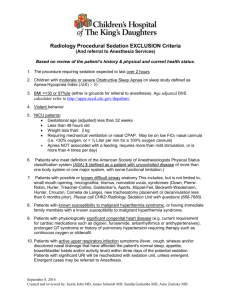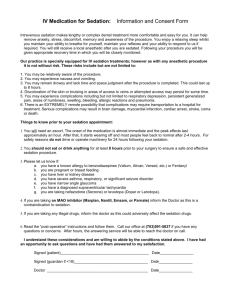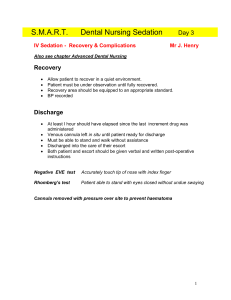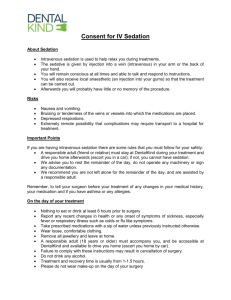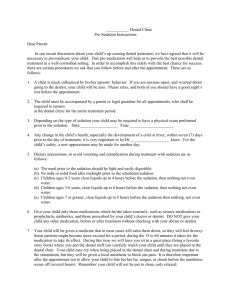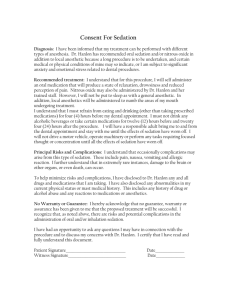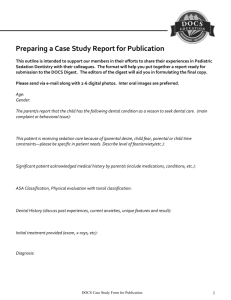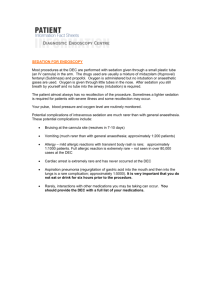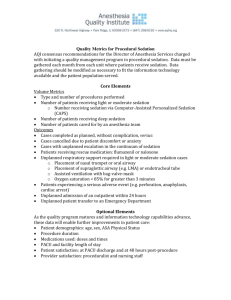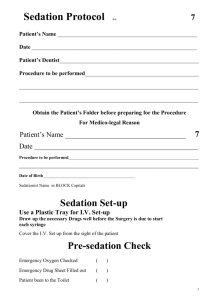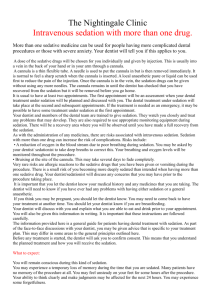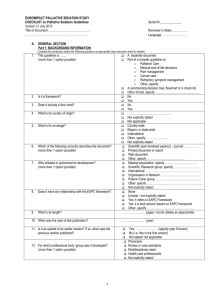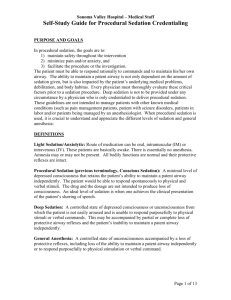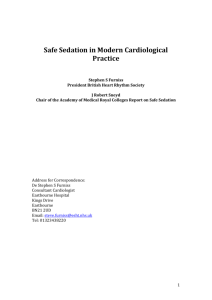West Hertfordshire Primary Care Trust
advertisement
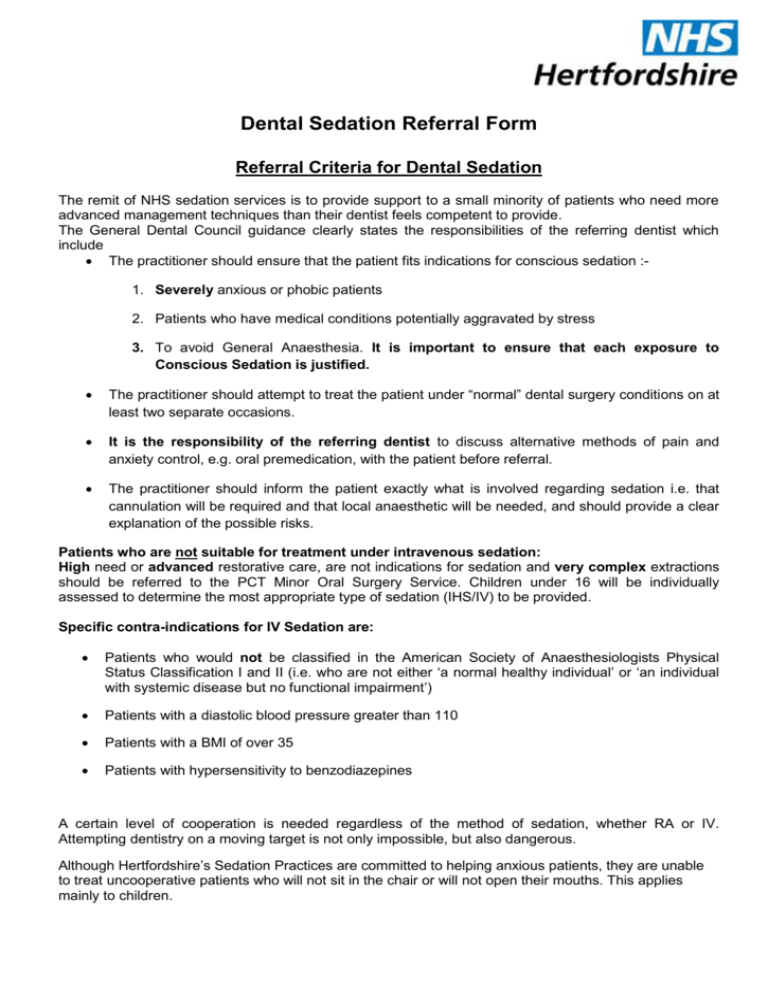
Dental Sedation Referral Form Referral Criteria for Dental Sedation The remit of NHS sedation services is to provide support to a small minority of patients who need more advanced management techniques than their dentist feels competent to provide. The General Dental Council guidance clearly states the responsibilities of the referring dentist which include The practitioner should ensure that the patient fits indications for conscious sedation :1. Severely anxious or phobic patients 2. Patients who have medical conditions potentially aggravated by stress 3. To avoid General Anaesthesia. It is important to ensure that each exposure to Conscious Sedation is justified. The practitioner should attempt to treat the patient under “normal” dental surgery conditions on at least two separate occasions. It is the responsibility of the referring dentist to discuss alternative methods of pain and anxiety control, e.g. oral premedication, with the patient before referral. The practitioner should inform the patient exactly what is involved regarding sedation i.e. that cannulation will be required and that local anaesthetic will be needed, and should provide a clear explanation of the possible risks. Patients who are not suitable for treatment under intravenous sedation: High need or advanced restorative care, are not indications for sedation and very complex extractions should be referred to the PCT Minor Oral Surgery Service. Children under 16 will be individually assessed to determine the most appropriate type of sedation (IHS/IV) to be provided. Specific contra-indications for IV Sedation are: Patients who would not be classified in the American Society of Anaesthesiologists Physical Status Classification I and II (i.e. who are not either ‘a normal healthy individual’ or ‘an individual with systemic disease but no functional impairment’) Patients with a diastolic blood pressure greater than 110 Patients with a BMI of over 35 Patients with hypersensitivity to benzodiazepines A certain level of cooperation is needed regardless of the method of sedation, whether RA or IV. Attempting dentistry on a moving target is not only impossible, but also dangerous. Although Hertfordshire’s Sedation Practices are committed to helping anxious patients, they are unable to treat uncooperative patients who will not sit in the chair or will not open their mouths. This applies mainly to children.

